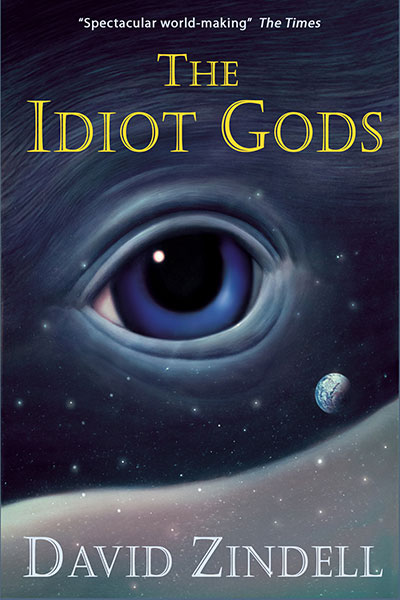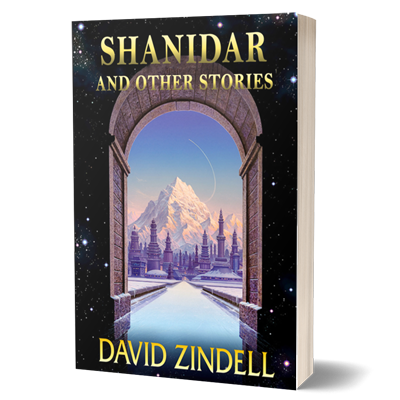 This novel began as a dream. Well, I think it did. In the middle of the night, I awoke from much tossing and turning and dimly remembered images that must have been dreams with these words formed in my mind: Of course, an orca. I didn’t know what that meant. Then a few moments later, I thought, “Of course, I’m an orca. In the surreal consciousness of emerging from a dream, I experienced some of the same confusion as had the great Chinese sage long ago:
This novel began as a dream. Well, I think it did. In the middle of the night, I awoke from much tossing and turning and dimly remembered images that must have been dreams with these words formed in my mind: Of course, an orca. I didn’t know what that meant. Then a few moments later, I thought, “Of course, I’m an orca. In the surreal consciousness of emerging from a dream, I experienced some of the same confusion as had the great Chinese sage long ago:
“Once upon a time, I, Chuang Chou, dreamt I was a butterfly, fluttering hither and thither, to all intents and purposes a butterfly. I was conscious only of my happiness as a butterfly, unaware that I was Chou. Soon I awakened, and there I was, veritably myself again. Now I do not know whether I was then a man dreaming I was a butterfly, or whether I am now a butterfly, dreaming I am a man.”
Over the next few hours, as my confusion deepened and I cast away all thought of returning to sleep, one image and idea after another came to me. There were moments when I actually felt myself swimming through the cold ocean – and through the seas of space and time by means of that strange and numinous sense my orcas call quenging. I knew that something hugely important had happened to me. As much as anything I’ve ever written, this novel seemed “given” to me by my ruling muses.
But exactly what was it I’d been given? For a long time, I’d wanted to write a novel about the human race as seen through an alien’s perspective, but I’d had no idea what sort of alien that might be. I’d been a big admirer of movies such as The Brother From Another Planet and Starman, along with books such as Stranger In A Strange Land and Watership Down. Although each of these does some things wonderfully, an alien who comes from elsewhere doesn’t have a real stake in our fragile, little world, and rabbits just aren’t intelligent enough to make the kinds of penetrating observations and analyses of humanity that I wanted to make. As for Michael Valentine Smith, he had grown up on Mars, and I always had a sense that spiritually he was more of Mars than of earth and could escape back to the Red Planet if he really had wanted to do so.
My orcas are very much of the earth and deeply involved with its fate. That means that they must necessarily involve themselves with human beings, although they would much prefer not to. They must understand our mad, murderous kind, or at least try to. What was it that I wanted orcas to observe and “zang” about us? Well, just about everything. That kind of comprehensive critique, however, could not be this book. I could only say – that is, my hero Arjuna could only tell of – what my whales encountered and understood.
Like all my novels, The Idiot Gods addresses human evolution, which has fascinated me for a long time. All of my novels have concerned two great questions: What does it mean to be human, and where, if anywhere, are we going? In order answer these questions, my orcas must ponder a more urgent mystery: What has gone wrong with the human race?
Most of us, most of the time, of course, don’t go about in worry that we’re only minutes away from blowing ourselves up with hydrogen bombs and that civilization is about to collapse. We wake up in the morning to our reassuring and energizing cup of coffee. Our houses and suburbs are quiet and smell of apple blossoms and jasmine, our work is mostly predictable and safe, and our supermarkets are full of food ready to be taken home, microwaved, and eaten. We can’t really perceive global warming as palpably as we do a pot of boiling water awaiting the addition of a few hundred spaghetti noodles; we don’t really believe that all those thousand of bombs will go off. However, if we look hard enough, we can see the many insanities human beings have wrought: the mangled veterans brought back from the never-ending war, pools of slush in Central Park on an 80 degree day in March, fourteen hundred people crushed to death in Mecca while on their way to perform the ritual of the Stoning of the Devil, and the little yellow flags of death warning that the lawns upon which our children play have been sprayed with herbicides to kill the pretty dandelions we call weeds.
My story begins with Arjuna’s trying to perceive and make sense of our world. In the same way that the Buddha, as a young, sheltered prince, encountered three signs that awakened him to the essential truth of the universality of suffering, Arjuna comes face to face with three of humanity’s many desecrations of our world. He takes this insane suffering to heart, and so loses his power to quenge. This impels him to want to somehow talk to human beings. He will ask us the same question that Parsival needed to ask of the wounded Fisher King so that that the grace of the Holy Grail might restore the wasteland of the world: What ails thee?
Of course, we humans don’t really know what ails us; this is a part of the reason that we are so sick. If we could only see ourselves as we really are, we might be able heal ourselves and our planet instead of creating fictional heroes to point the way and do the hard work for us. We cannot see very easily, though, and even less can we hear the wisdom that the creatures of our world might offer us. We are vastly powerful beings who have almost willfully blinded and benumbed ourselves; that is why the whales call us the idiot gods. Out of vast narcissism, in pure criminal ignorance, the humans of my story can’t perceive that Arjuna wants to help the human race. So they imprison him and set about slowly killing him in his body – and rather more quickly in his soul.
Arjuna, though, won’t so easily be killed. He’s tough; he’s strong of body; he’s fierce of will; he’s a mighty orca. He’s a hero, in the human sense of the word. The whale sense, however, as in all things, is very different. Arjuna cannot reach the end of his quest and regain his power to quenge simply by slaying dragons. As with all true heroism, human or cetacean, Arjuna must overcome his small and often wrathful self to become the great being asleep inside him. He must take to heart the wisdom proffered by T. S. Eliot at the end of his great poem, The Wasteland: Give; be compassionate; restrain yourself. In the end, the only way that Arjuna can accomplish this great feat is to discover his deep and mysterious connection to humanity – and, in a strange way, to become a human being himself.
For like me, like all of us, Arjuna dreams. (Although, as with all cetaceans, only one half of his brain sleeps at any time). Out of the miraculous confusion of the human and orca parts of him comes a dream for us, the often inhumane beings who have tormented him – a dream of who we really are and who we might become. It is a simple dream, really, a vision and a hope that plays out in one way or another through all my novels: he would like us to act much less like idiots and much, much more like the gods we are born to be.
Purchasing Links
The Idiot Gods can be purchased at the following online stores.
Print version: Amazon • Barnes and Noble
Ebook: Amazon • Barnes and Noble • Kobo • Apple Store

